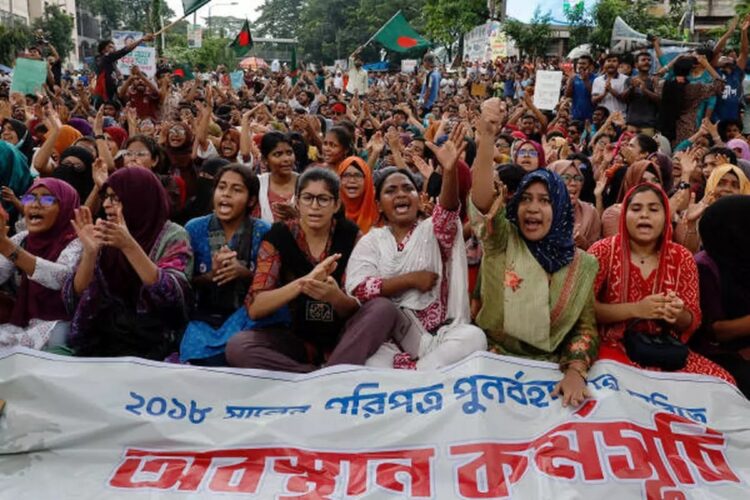Prime Minister Sheikh Hasina is struggling to regain control in Bangladesh amidst ongoing unrest. There are no signs yet of the turmoil subsiding, nor of the Awami League government securing control over the situation.
Even if Hasina’s government pledges to abolish job quotas and conducts a transparent investigation into the recent deaths of over a hundred students and civilians, public outrage remains high. The protests, initially about discriminatory job quotas, have now escalated into a broader anti-government movement.
The Opposition Bangladesh Nationalist Party (BNP) and its ally, Jamaat-e-Islami Bangladesh, have politicized the unrest, demanding Hasina’s resignation and fresh elections under a caretaker regime. This demand, longstanding since the 2014 elections, has been ignored by Hasina in subsequent elections, despite support from the United States and some Western countries.
The US has been critical of Hasina, labeling the recent elections as ‘undemocratic’ and allegedly encouraging opposition to her government. Awami League leaders and independent voices in Bangladesh claim the anti-quota protests intensified after BNP and Jamaat involvement, transforming into a violent anti-government movement.
Implications for Regional Stability
The ongoing unrest has severely weakened Hasina and the ruling party, damaging Bangladesh’s economy and international standing. The economic strain and the deaths of numerous students during protests have eroded Hasina’s political capital and trust among the people.
This instability is expected to empower the BNP and Jamaat, groups known for their ties to radical Islamist factions and Pakistan. This shift could lead to increased Pakistani influence in Bangladesh, posing a security threat to the region. Islamist groups in neighboring countries, with connections to Bangladeshi radicals, may also become more active.
Strategic Response Needed
Sheikh Hasina must focus on regaining control and combating Islamist elements within Bangladesh. Eliminating pro-Pakistani elements from Bangladesh’s institutions and ensuring the neutralization of radical groups is crucial.

















Comments